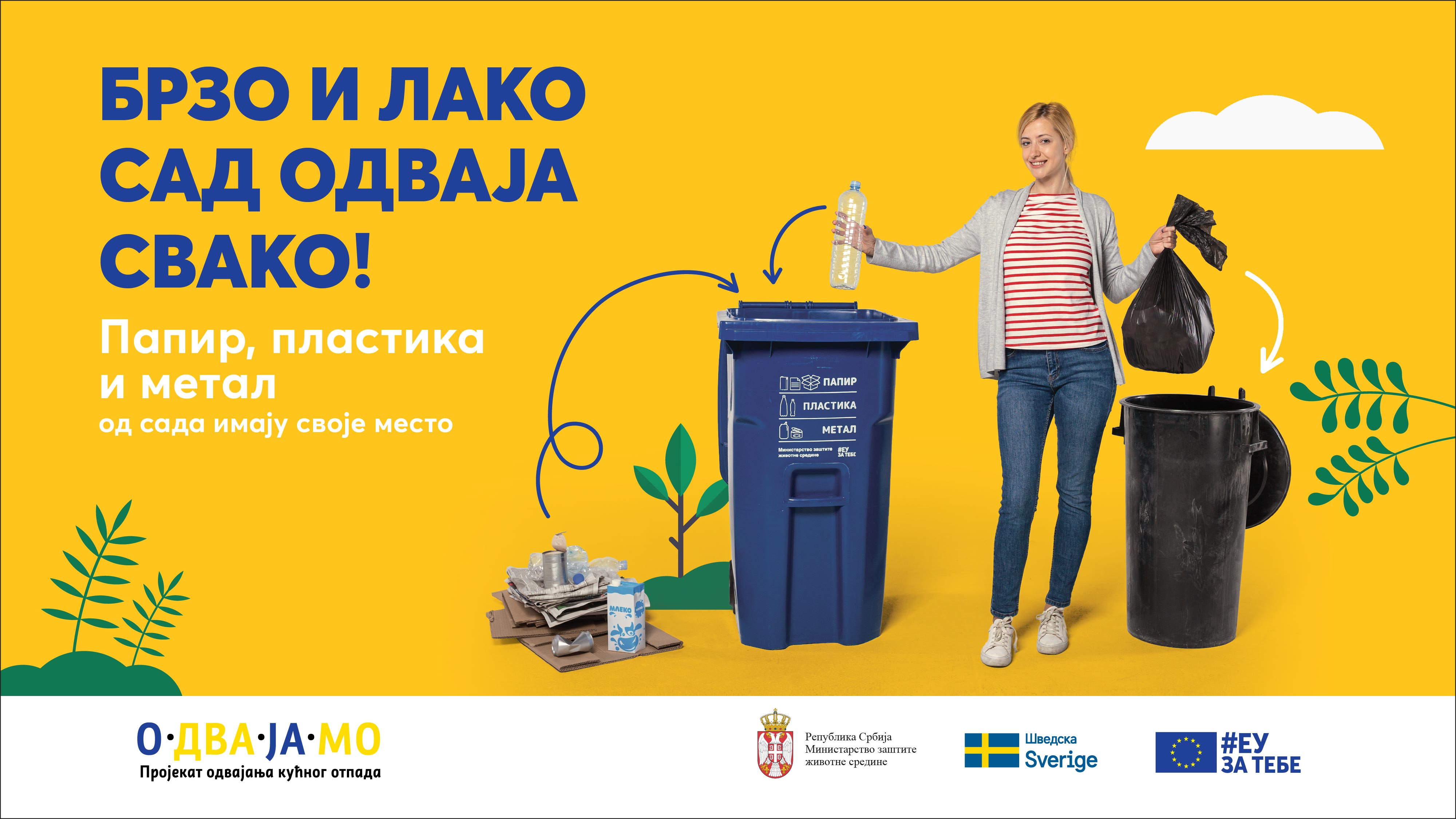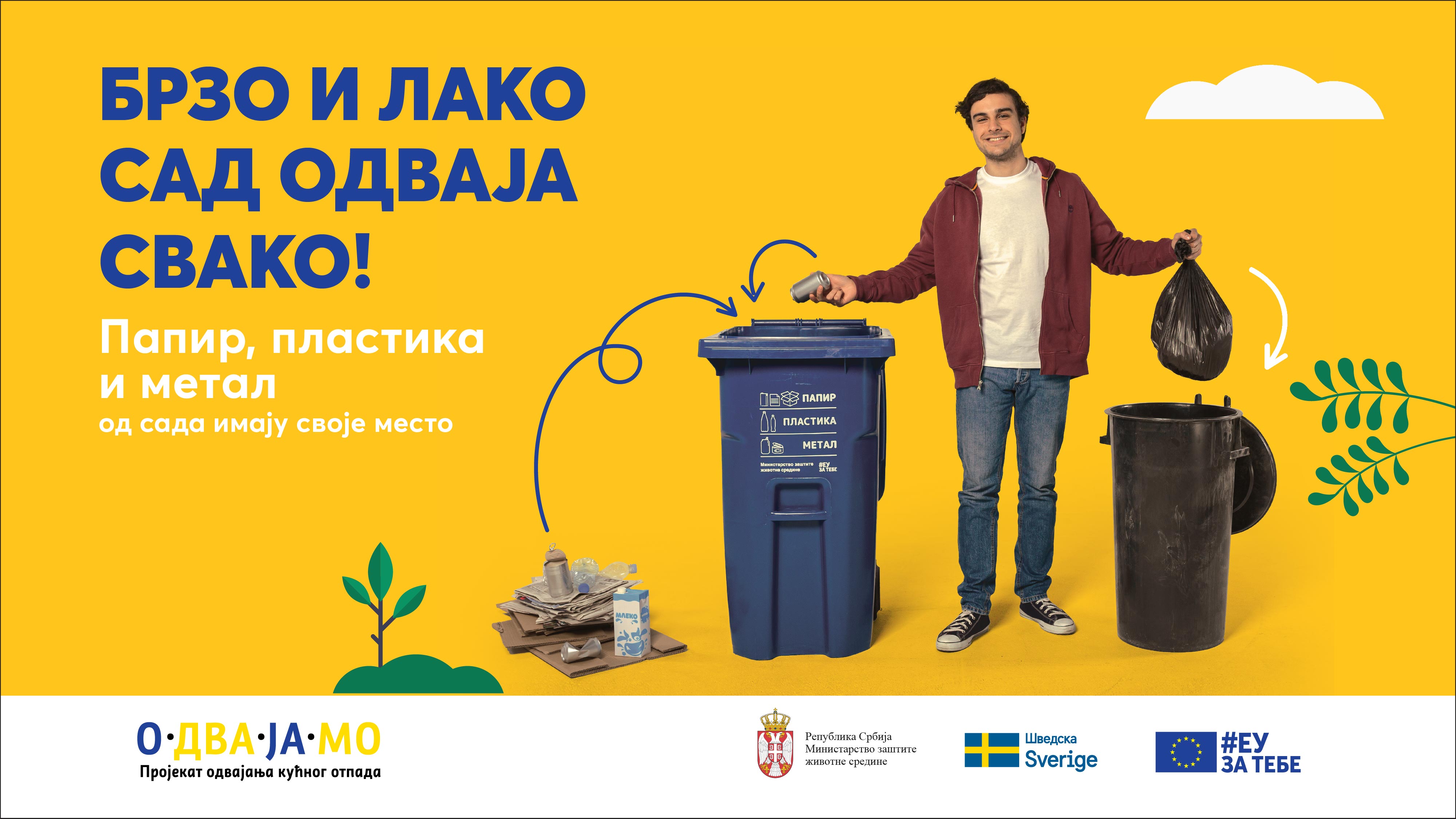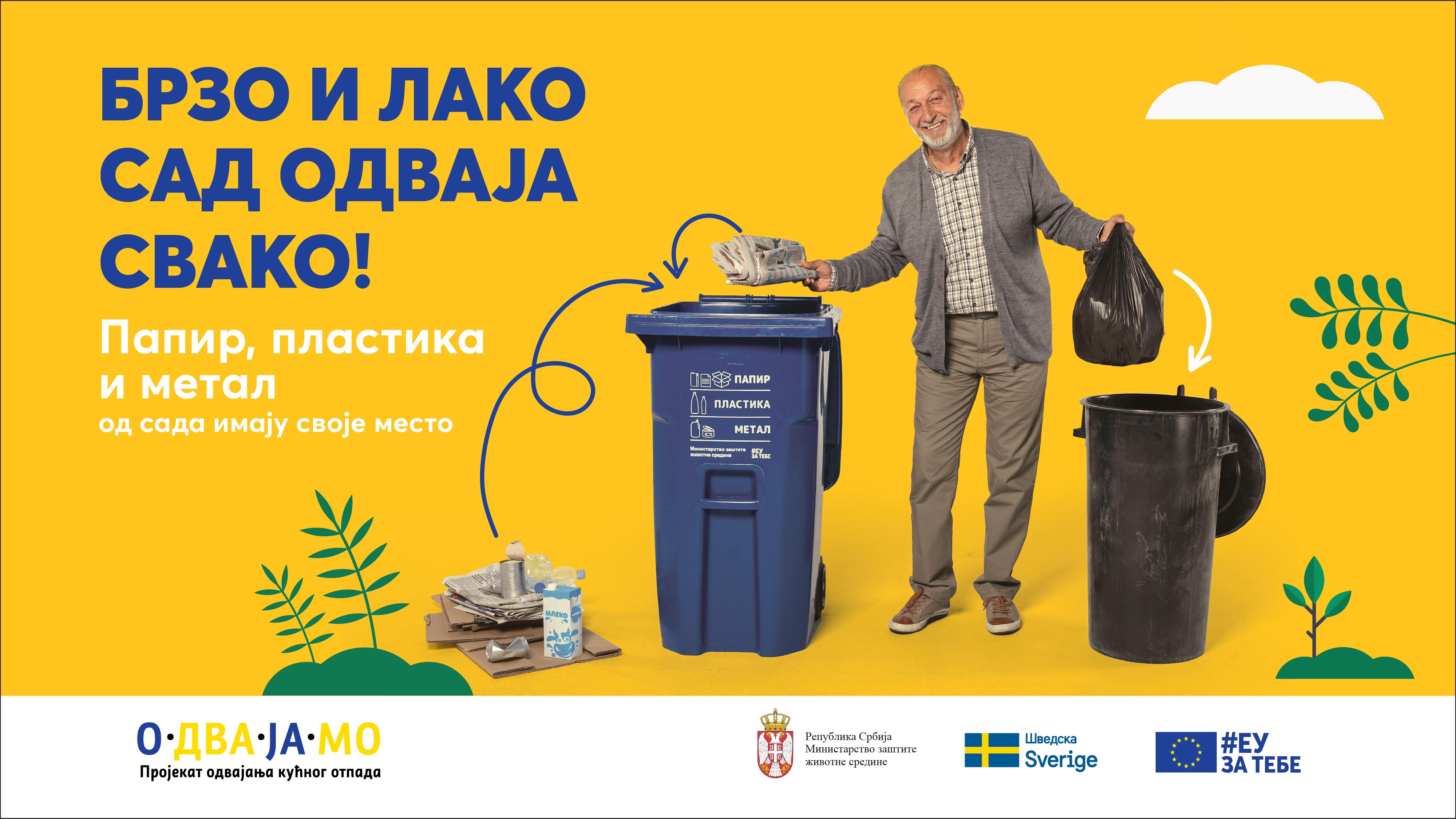Before designing any campaign, it is necessary to have a communication strategy, and in order to come up with a good strategy, it is essential to find out what people think about a certain topic, and what their attitudes are. That is why the development of the campaign for the Project for Household Waste Separation O-DA-JA-MO was preceded by detailed quantitative and qualitative research in which previous campaigns on this topic were analyzed, 2150 people from 17 municipalities were surveyed and more than one thousand five hundred hours were spent in focus groups. As part of the research, a little more than half of the population declared that they separate waste, and among them, 56.13% do it often or always. Focus group participants are more realistic in this aspect because they were also very critical of the existing waste management system.
The survey found that both men and women separate waste equally. Young people are not as active and have a lower level of moral responsibility. The focus groups showed that we consider women to be far more proactive, they have moral strength, optimism, and the will to deal with waste separation in the household, and that the younger generations are expected to be the initiators and bringers of positive changes in this field.
The result of this extensive research is important strategic insights that helped us develop the campaign.
Here are some.
People have a high awareness of waste separation. Local and global aspects are equally important to them - we protect the planet, but above all, we protect our local community. They think that the institutions should be an example and that a clear system should be introduced that will not only solve practical matters but will change people's behavior because older fellow citizens have a hard time changing their habits.
Because of the resigned and distrustful, hope should be raised and inspired – it is crucial to show the result of better waste handling, and empower and educate all target groups through clear advice and examples.
According to everything we found out through the research, a clear campaign adapted for different media channels was created, which will soon start in all municipalities.


